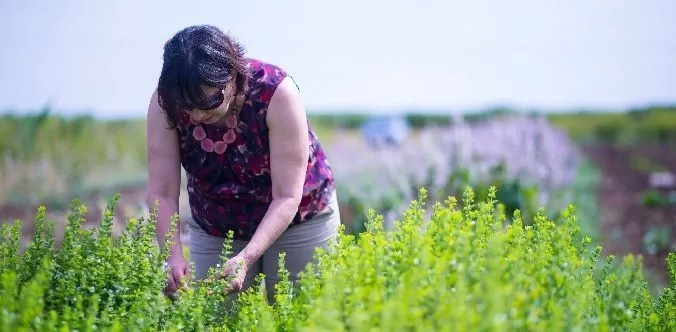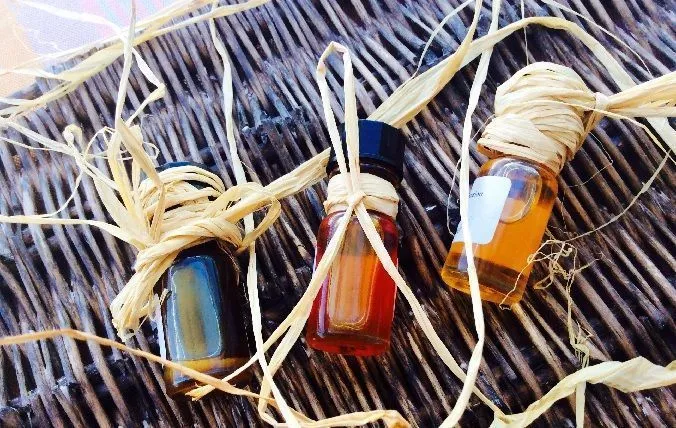The aromatherapy it can improve your mood, protect you from harmful bacteria and help reduce the stress we suffer daily. All this is assured by various studies with criteria. However, researchers are not entirely sure how this is achieved.
Only a decade ago, any graduate in medicine and healthcare institution scoffed at alternative healing techniques such as acupuncture and massage, which were considered quackery by some doctors.
Now, of course, the case of the Americans, they spend large amounts of money (latest data from the National Institutes of Health) in what is now known as complementary medicine and alternative, and a large amount of the budget is devoted to research, with the aim of validating the healing power of some of these non-Western techniques.
Such a case is aromatherapy, where the essential oils of plants are used, through their sextracts, for various uses. These include:
- Relaxation
- Pain relief
- Stimulation of the autoimmune system
- Improving mood
- Constipation
- Psoriasis
- Beauty products
Table of Contents
Does aromatherapy really work?
Ancient cultures surely thought so. Aromatherapy has been used for centuries. Legend has it that Hippocrates – the so-called father of modern medicine and the namesake for the oath that doctors recite , used the rose petal oil to cure disorders of the uterus.
The rapid advancement of many years and the discovery of new essential oils may have spurred new studies and responses to help people with severe mental disorders. In the British Journal of General Practice, an analysis of a dozen trials related to aromatherapy has concluded that aromatherapy has “a mild transient anxiolytic effect” on dementia.
The National Cancer Institute concludes on its website that the aromatherapy it can lead to positive effects on behavior and the immune system.
In a review of clinical trials published in journals related to psychiatric treatment, 72 patients with severe dementia were treated with lemon essential oil balm and demonstrated improvements in behavioral symptoms comparable to the outcomes seen in patients with less severe dementia treated with “neuroleptic agents.” That is, tranquilizers.
Are there conclusive results?
Oddly enough, the biggest critics of aromatherapy may be the authors of the aforementioned studies. Although some of the research shows the medicinal potential of the essential oils, the authors say the results are inconclusive. In the study of British Journal of General Practice in dementia, the authors suggest that the results are not strong enough to recommend aromatherapy alone. “It is also not effective for any other indication,” says the review hypothesis.
The other study on the potential of aromatherapy to treat dementia, in Advances in Psychiatric Treatment, concludes that although aromatherapy may be beneficial as an adjuvant therapy, the study cannot be used as proof that it is a viable and substitute alternative to the sedatives (drugs) used by people with severe dementia.”
The same authors suggest that the aromatherapy oil it should not be seen as a “safe alternative to existing pharmacotherapy until properly conducted safety trials have been completed.”

Why mixed results?
There are several reasons why it is difficult for modern medicine to unequivocally support the benefits of aromatherapy. On the one hand, climate and geography can produce different yields and strengths of the same plant in two different locations. In addition, the financing of aromatherapy studies is going through its worst time.
It is widely cThat, even a decade ago, essential oils are not such a high priority for the study of pharmacological compounds, although both contain plant extracts.
There may be too many variables and there is not enough money to properly conduct large-scale “double-blind” controlled studies.
How does aromatherapy work?
All plants contain molecular gases. Through the processes of distillation and evaporation, these molecular gases, which aromatherapy proponents sometimes refer to as plant “life force” or “essence” (hence the term essential oil), break down into liquid form. You can take thousands of flower petals to create a small bottle of essential oil.
Vaporizers, sprayers, diffusers, steam inhalation or breathing in a soaked cloth are some of the professional ways that doctors or masseurs can administer such essential oils from medicinal plants.
Scented candles may also include essential oils, although such candles may contain synthetic oils not recommended.
What else are essential oils for good?
Your teeth and gums can also benefit from essential oils. In a study in the Journal of Periodontology, the researchers concluded that essential oils may help in reducing plaque and dental gingivitis.
In addition, it should be known that there are scientific studies that mention that essential oils help protect against pathogenic bacteria. In the last 25 years, the antimicrobial properties that oils can offer are well known (they have been clinically proven, like this one) revision in Current Medicinal Chemistry, which concludes that certain spice and herbal oils – thyme specifically, oregano, mint, cinnamon, sage and cloves – are perhaps the strongest neutralizers of bacteria and fungi.
Is aromatherapy safe for everyone?
For the most part, yes. But certain populations should avoid the practice or at least ask their doctor if such essential oils can be used as adjunct therapy. This includes pregnant women, people with asthma and other respiratory illnesses and allergies, as well as people with epilepsy and high blood pressure.
Tell us what you think of aromatherapy. Do you trust her?

